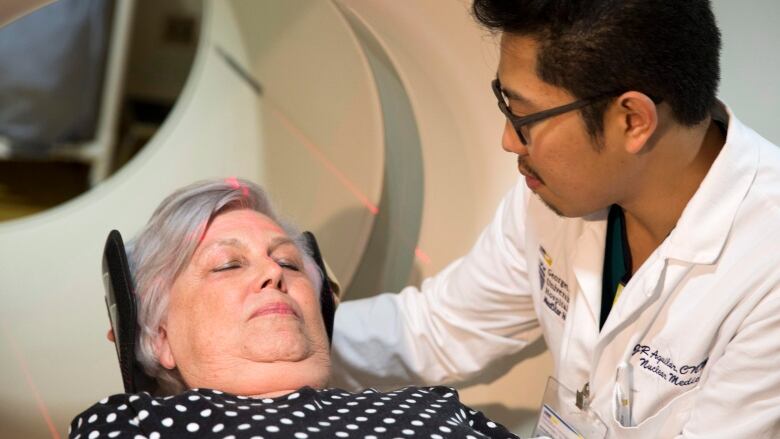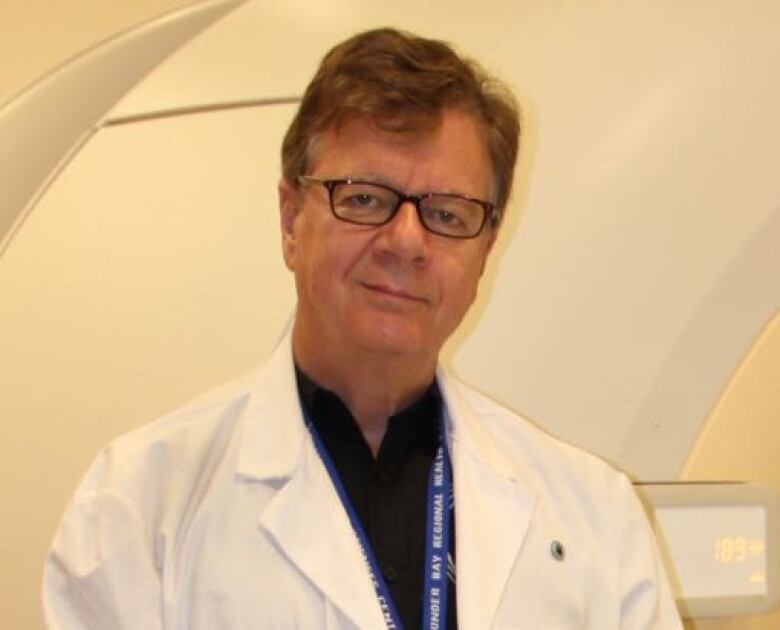Mobile PET scanner could be a good option for Sudbury, doctor says
Turning down the mobile scanner was a way for the province to buy more time, Dr. Dave Webster says


A doctor of nuclear medicine says Sudbury could have a PET scanner here next week if the province allowed a mobile version of the cancer detecting equipment.
In December, the Ministry of Health and Long-Term Care announced it would pay to operate a permanent scanner as early as April.
But first, the community mustraisemillions of dollars to buy the machine.
A Positron EmissionTomography(PET) machine uses a type of sugar to detect cancer, cardiac issues andeven dementia, andcan detect cancer that CT or MRI scans miss.
The Ministry of Health and Long-Term Care has told Sudburyit's up to residents toraise the money needed to buy the region's first machine, which is estimated to cost as much as$5 million dollars.
- Ontario government stalling introduction of PET scanners
- Sudbury should've had PET scanner 'a long time ago'
- Province to payoperating costs for PET scanner in Sudbury
Dr.Dave Webster told CBC News a mobile scanner could have been brought in immediately to do scans until a permanent machine could be purchased.

"They've implied that we'll have one here April first. The sun will come up in the west before that happens," he said.
"They knew that this is not going to physically be possible."
The ministry saidit decided against a mobile PET scanner because of the stops it wouldmake on route to Sudbury and the affect that would have on the shelf life of isotopes, the atoms used to run the scans.
But Webster said that's not the case, as the isotopes would have been delivered separately by plane.
"We could literally have this pet scanner up here next Tuesday. And the only infrastructure cost required is a 220 volt plug-in line," he said.
'This is not new'
Dr.Kevin Tracey, who runs an independent mobile PET scanner in Windsor, said mobile scannersallowsmaller cities to share the cost of the machine and reduces the need for patient travel.

"If Ontarioinstituted a series of routes, then the province could be utilizing PET very quickly in a lot of centres like Sudbury," he said, adding that this type of system has been in use in the United States for some time.
The mobile scanner is "a stepping stone to what your goal is: to have a permanent PET on site," Tracey continued.
"We're saying this is a quick and easy way to get up and going using the operational dollars that were offered on April," he said.'We could have been mobilized andin place before then to take advantage of those funding dollars to help patients getimaged right away."
Tracey'smobile scannerhas been in operation for five years. He saidhe wasapproached two years ago by the provincial government to show how mobile scans could work and wasin discussion with the ministry to bring a mobile PET scanner to Sudbury.
Tracey said hewasnot notified that the permanent scanner had been decided forSudbury until it was publicly announced.
"They didn't have any communication with us a week before the announcement," he said.












_(720p).jpg)


 OFFICIAL HD MUSIC VIDEO.jpg)
.jpg)



























































































